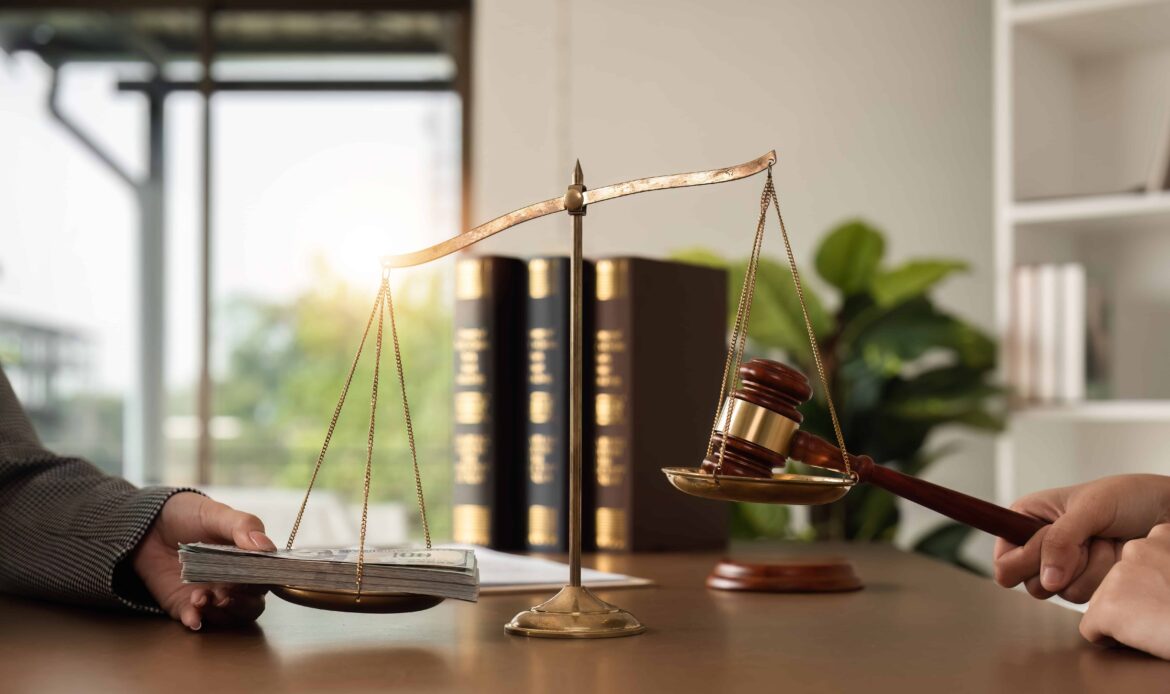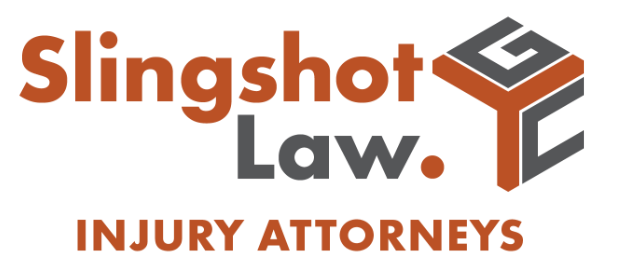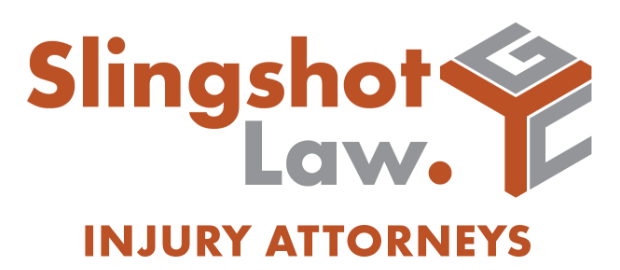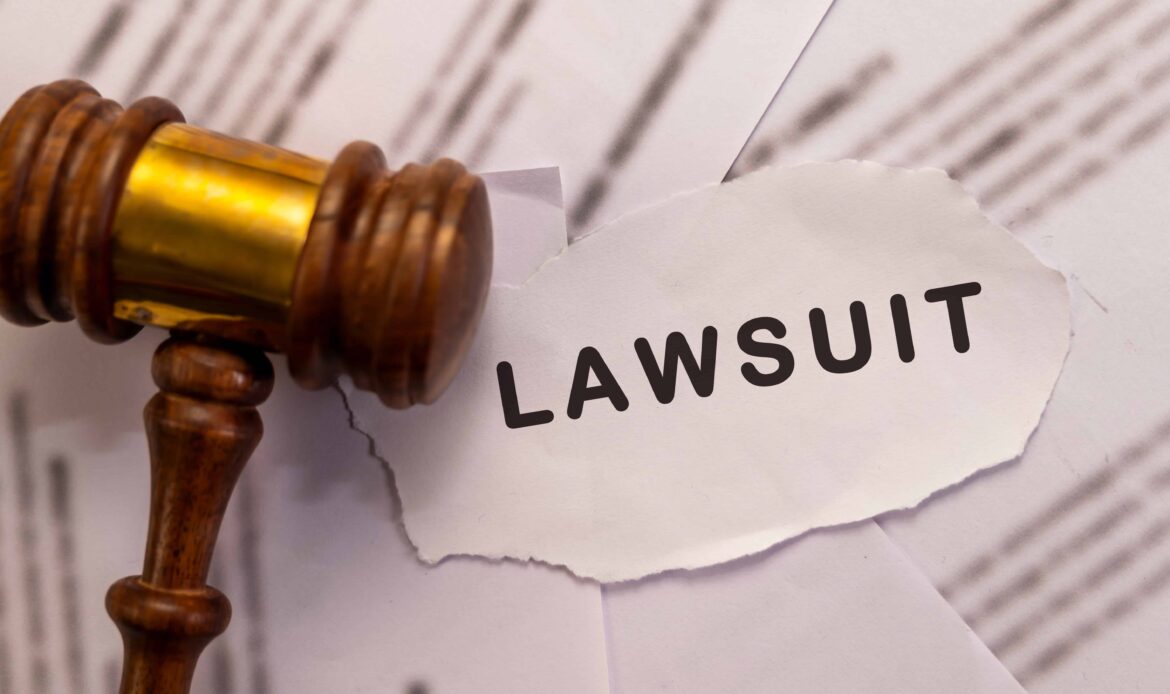Most accident victims never expect to navigate Colorado’s legal system, yet many find themselves injured and facing medical bills while insurance companies focus on protecting their profits. A personal injury lawyer provides clarity and direction, guiding you through each phase of your case—from investigation through potential settlement or trial.
The path from accident to compensation involves strict procedural requirements, strategic decisions, and legal deadlines that determine whether you can seek full recovery for your injuries. Call Slingshot Law at (800) 488-7480 to begin building your strongest case today.
Key Takeaways About Steps in a Personal Injury Lawsuit
- Personal injury lawsuits generally follow predictable stages, but timelines can vary based on injury severity, liability disputes, and insurance company tactics.
- Most cases resolve before trial, though thorough trial preparation often encourages stronger settlement offers.
- Colorado law gives you two years to file most personal injury claims and three years for those involving motor vehicle accidents. Claims against government entities must comply with the Colorado Governmental Immunity Act, which requires written notice within 182 days and imposes additional limitations. Missing any of these deadlines can bar recovery entirely.
- Discovery phases uncover evidence that strengthens or weakens cases, influencing settlement value and trial strategy.
- Many cases resolve through mediation or arbitration, which can provide faster and more cost-effective outcomes than trial.
How Colorado Personal Injury Lawyers Handle the Lawsuit Process
Personal injury cases demand more than filling out forms and waiting for checks to arrive in the mail. Drew Gibbs learned during his years defending insurance companies that carriers deploy teams of adjusters, investigators, and attorneys immediately after accidents to minimize claim values.
His transition to representing injury victims revealed how quickly evidence disappears, witnesses forget details, and corporate defendants coordinate defense strategies while victims focus on healing.
Scott Crivelli’s military JAG experience taught him that winning legal battles requires meticulous preparation, strategic timing, and aggressive advocacy when opponents refuse reasonable settlements.
He brings this disciplined approach to every personal injury case, anticipating insurance company tactics and preparing responses before adjusters even make their moves. Together, they navigate clients through Colorado’s legal system with precision gained from decades of combined courtroom experience.
How Your Lawyer Builds a Winning Personal Injury Case Strategy
Your personal injury lawyer begins by conducting comprehensive case assessments that determine optimal legal strategies for your specific situation.
They analyze liability factors, identify all potentially responsible parties, and evaluate insurance coverage available for compensating your damages. This initial evaluation shapes every subsequent decision, from choosing defendants to selecting venues for filing lawsuits.
Slingshot Law investigates beyond surface-level facts, uncovering evidence that transforms moderate cases into substantial recoveries. They examine corporate relationships revealing additional defendants, analyze similar incidents establishing negligence patterns, and identify regulatory violations strengthening liability arguments.
This thorough approach often discovers compensation sources other firms miss, particularly in complex cases involving commercial vehicles, dangerous properties, or defective products.
Meeting Court Deadlines and Filing Rules in Colorado Injury Cases
Colorado’s legal system includes strict procedural rules, and missing a requirement can harm even valid claims. Your attorney handles filing, service of process, and responsive pleadings that move your case forward. They monitor multiple court deadlines, including discovery and expert disclosure dates, which directly affect your ability to present evidence at trial.
Mesa County District Court follows local administrative practices that supplement statewide civil rules. Experienced personal injury attorneys understand:
- Local filing and scheduling practices for Grand Junction cases
- Judicial preferences for conferences and hearings
- Electronic filing requirements for Mesa County civil cases
- Disclosure timelines under the Colorado Rules of Civil Procedure
Because local practices vary, attorneys familiar with Western Colorado courts ensure compliance with every procedural rule that protects your right to proceed.
First Steps in a Colorado Personal Injury Case from Consultation to Investigation
The journey toward compensation begins with understanding your rights and evaluating whether legal action makes financial sense given your specific circumstances and available recovery sources.
What to Expect During a Free Personal Injury Consultation
Initial consultations with personal injury attorneys typically cost nothing, allowing you to understand your options without financial commitment. During these meetings, lawyers evaluate liability factors, review initial evidence, and provide honest assessments about case strengths and potential values. They explain contingency fee arrangements where you pay nothing unless cases succeed.
Bring all available documentation to consultations, including police reports, medical records, insurance correspondence, and photographs. Personal injury lawyers use this information to identify immediate action items like evidence preservation letters, treatment recommendations, and insurance claim strategies. Early attorney involvement often dramatically improves outcomes by preventing costly mistakes during initial claim stages.
How Lawyers Investigate Accidents and Preserve Critical Evidence
Personal injury attorneys launch immediate investigations before evidence disappears or memories fade from witness recollections. They visit accident scenes along Highway 6, Interstate 70, or downtown Grand Junction streets to photograph conditions, measure distances, and identify surveillance cameras.
Investigators interview witnesses while events remain fresh, obtaining detailed statements that prove invaluable months later.
Your lawyer obtains official reports from responding agencies like Grand Junction Police, Mesa County Sheriff’s Office, or Colorado State Patrol. They subpoena 911 recordings, dispatch logs, and officer body camera footage providing unfiltered accident documentation.
Private investigators may conduct surveillance, background checks, or asset searches revealing information affecting case strategies.
Evidence gathering priorities for strong personal injury cases include:
- Prior incidents at accident locations suggesting known dangers
- Safety violations by defendants showing systematic negligence
- Corporate policies prioritizing profits over public safety
- Maintenance records proving ignored hazard warnings
- Training deficiencies contributing to employee negligence
This comprehensive investigation creates leverage forcing defendants to acknowledge responsibility rather than denying obvious fault.
How Medical Treatment and Demand Letters Shape Your Injury Claim

Many personal injury cases resolve through negotiations before lawsuits become necessary, saving time and expense while still achieving fair compensation.
Documenting Medical Treatment and Calculating Damages
Completing medical treatment or reaching maximum medical improvement provides clearer pictures of your damages before beginning serious settlement negotiations.
Personal injury attorneys work with treating physicians at St. Mary’s Medical Center, Community Hospital, or specialized facilities to document injury extent, treatment needs, and permanent limitations. They obtain detailed medical narratives explaining how accidents caused specific injuries and relating symptoms to trauma mechanisms.
Economic experts calculate total losses including past medical bills, future treatment costs, lost wages, and diminished earning capacity. Life care planners develop comprehensive future medical needs assessments for serious injuries requiring lifetime care. This thorough documentation prevents insurance companies from minimizing injuries or arguing about causation.
Settlement Negotiations With Insurance Companies
Personal injury lawyers prepare detailed demand letters presenting liability evidence, medical documentation, and damage calculations to insurance carriers. These packages tell compelling stories about how defendants’ negligence changed victims’ lives, supported by exhibits proving every claimed loss. Professional presentation and thorough documentation signal serious intent to pursue litigation if reasonable settlements aren’t offered.
Insurance adjusters respond to demands with initial offers typically far below case values, beginning negotiation processes that may continue for weeks or months. Your attorney counters lowball offers with additional evidence, comparable jury verdicts, and legal arguments supporting higher valuations. Most cases settle during this pre-litigation phase when both sides recognize litigation risks and costs.
What Happens When You File a Personal Injury Lawsuit in Colorado
When negotiations fail to produce acceptable settlements, filing formal lawsuits triggers court procedures compelling defendants to respond and exchange information.
Drafting and Filing the Personal Injury Complaint
Personal injury lawsuits begin with complaints describing factual allegations, legal theories, and damages sought from defendants. Attorneys craft these documents strategically, including sufficient detail to survive dismissal motions while avoiding unnecessary revelations helping defense preparation.
Colorado law requires serving defendants within specific timeframes after filing, with process servers providing proof of proper notification.
Defendants must respond to complaints within prescribed periods, either answering allegations, asserting defenses, or filing motions challenging legal sufficiency. Their responses reveal defense strategies, admitted facts, and contested issues shaping subsequent litigation. Counter-claims or third-party claims may expand lawsuits beyond initial parties.
Discovery Process in Personal Injury Cases
Discovery phases allow both sides to obtain information through various legal tools compelling disclosure. Written interrogatories require answering specific questions under oath about accident circumstances, medical history, and damage claims. Document requests seek relevant records including medical files, employment documentation, and insurance policies.
Depositions provide opportunities to question parties and witnesses under oath with court reporters creating official transcripts. Personal injury lawyers prepare clients extensively for depositions, anticipating trick questions and teaching effective response techniques. They aggressively depose defendants, insurance adjusters, and expert witnesses to lock in testimony before trial.
Colorado’s discovery rules balance information access with efficiency through specific mechanisms:
- Mandatory disclosures revealing key witnesses and documents early
- Protective orders limiting invasive requests or shielding sensitive information
- Discovery dispute resolution through court hearings
- Sanctions for withholding evidence or refusing legitimate requests
- Expert witness reports required before testimony
Discovery revelations often drive settlements by exposing case strengths and weaknesses neither side fully understood initially.
Settlement or Trial How Colorado Injury Cases Are Resolved

As trial dates approach, cases enter intensive preparation phases that often produce settlements when defendants face actual courtroom reality.
Alternative Dispute Resolution for Injury Claims
Colorado courts often encourage or require mediation before trial because it can resolve cases efficiently and cost-effectively. Mediators help parties identify common ground and work toward voluntary settlements.
Arbitration is another option in which a neutral arbitrator reviews evidence and issues a binding or nonbinding decision, depending on the agreement. Personal injury attorneys recommend the best resolution method based on case complexity and the parties involved.
Mediation works best when both sides seek resolution but need a neutral facilitator to bridge gaps. Arbitration is often used when the dispute involves legal or factual issues rather than credibility. Certain insurance policies require arbitration for uninsured or underinsured motorist claims under specific policy terms.
Personal Injury Trial Preparation and Jury Verdicts
Cases reaching trial require extensive preparation including witness preparation, exhibit organization, and jury selection strategies. Personal injury lawyers develop trial themes resonating with Mesa County jurors, crafting opening statements and closing arguments that clearly communicate your story.
They present evidence methodically, building liability and damages through witness testimony, expert opinions, and documentary proof.
Key trial preparation elements for Grand Junction personal injury cases involve:
- Jury selection strategies specific to Western Colorado demographics
- Visual aids explaining complex medical injuries to lay jurors
- Economic expert testimony about local wage loss impacts
- Witness preparation for effective courtroom testimony
- Demonstrative evidence showing accident reconstruction
Jury verdicts in Grand Junction reflect community values and economic realities affecting damage awards, with local juries understanding how injuries impact outdoor lifestyles and energy sector employment common in Western Colorado.
FAQs for Personal Injury Lawyers
When should I hire a personal injury attorney?
Contact attorneys immediately after accidents to preserve evidence and protect rights. Early representation prevents costly mistakes and typically results in higher compensation than self-representation.
What happens if my case goes to trial?
Trials involve jury selection, opening statements, witness testimony, evidence presentation, closing arguments, and verdict deliberation. Most cases settle before trial, but preparing for trial often drives better settlements.
Can I switch personal injury lawyers during my case?
You may change attorneys anytime, though original lawyers may claim fees for work performed. New attorneys often negotiate fee splits avoiding additional client costs.
What if I partially caused my accident?
Colorado’s modified comparative negligence rules reduce recovery by your fault percentage if under 50%. Skilled attorneys minimize comparative fault arguments through careful case presentation.
Take Legal Action on Your Colorado Personal Injury Case Today
Delaying legal representation increases the risk that evidence will be lost, witnesses’ memories will fade, and insurers will strengthen their defenses. While you focus on medical care and recovery, defendants and insurance companies may work to limit the value of your claim.
Personal injury lawyers help level the playing field by managing every deadline, filing, and strategic decision that affects your case. Slingshot Law combines litigation experience with insurance industry insight to guide clients through every phase of the legal process and pursue the maximum compensation available under Colorado law.
Call (800) 488-7480 today to discuss your case and learn how an attorney can protect your right to recovery.


